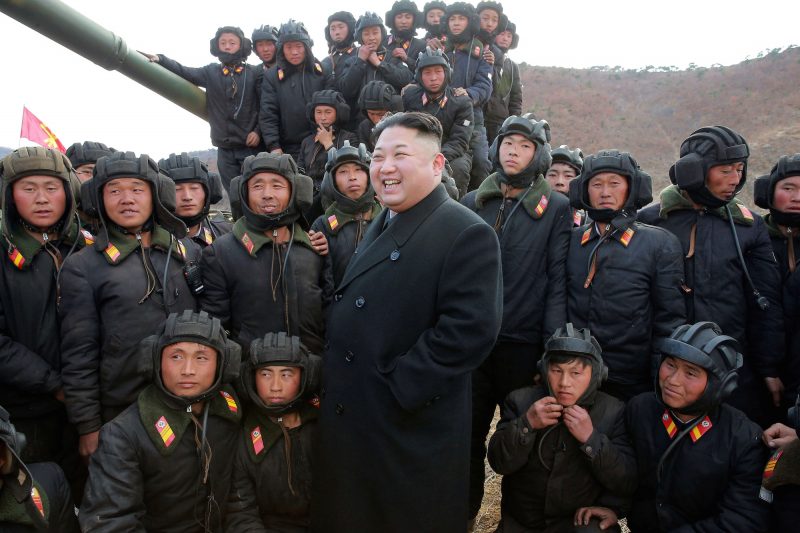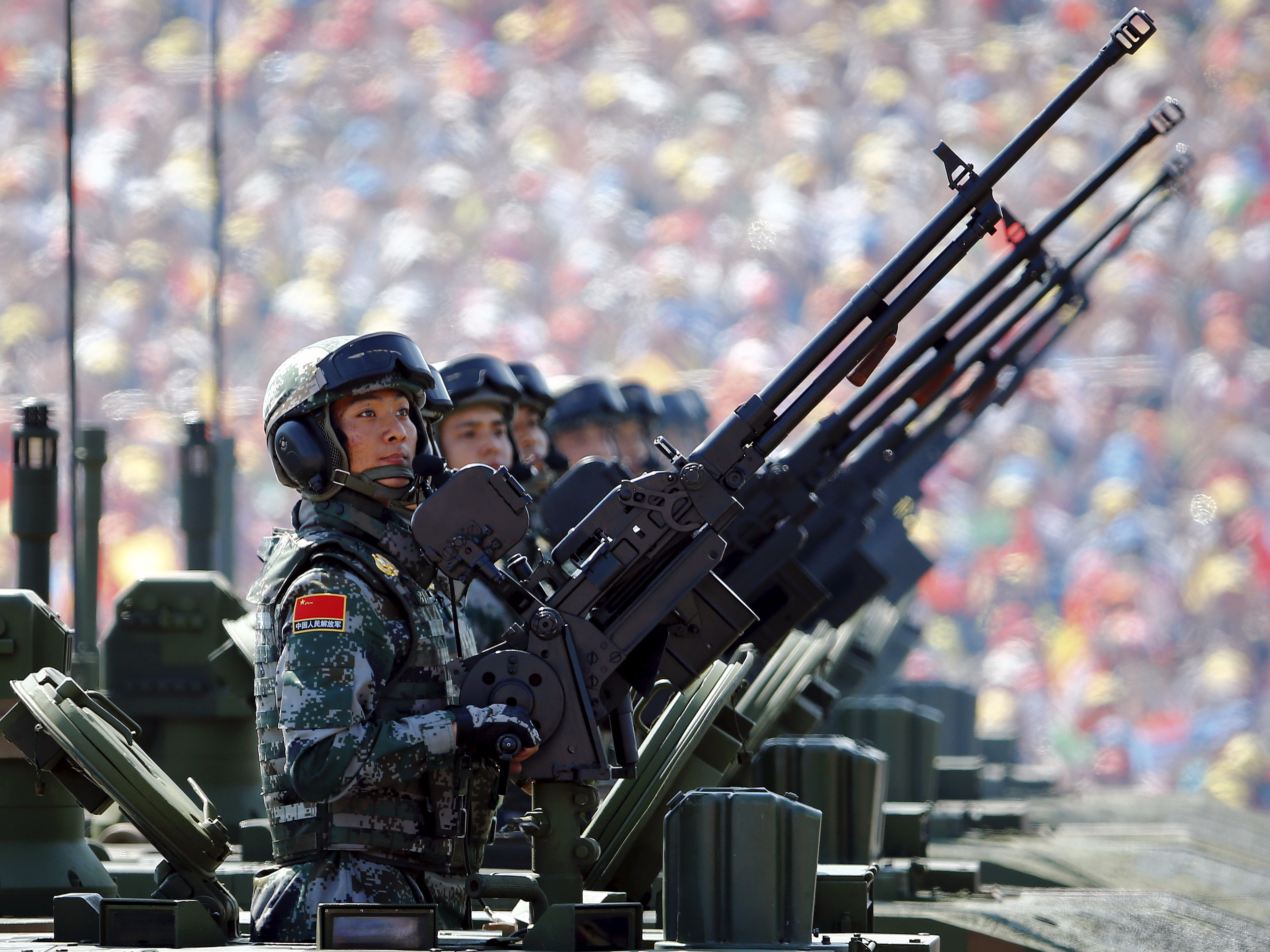Amid a productive phone call between President Donald Trump and Chinese President Xi Jinping, Chinese state-run media reported that a force of 150,000 troops went to North Korea’s border.
International observers fear that North Korea may conduct another nuclear test this weekend on the anniversary of the founding of Kim Jong Un’s regime, but the US has broadcast loud and clear that nuclear posturing in the Korean peninsula will no longer be tolerated, and the Chinese seem to be stepping up to help.
In March, Business Insider talked to Sim Tack, a North Korea expert at Stratfor, a geopolitical analysis firm, who speculated how Chinese forces could potentially stop North Korea’s nuclear program without firing a shot.
Tack predicted that China would “definitely react to and try to prevent” a US strike on North Korea, as the US increasingly touted military strikes as an option against the Kim regime, even going as far as positioning an aircraft carrier off Korea’s coast.
“The overt presence of Chinese forces would dissuade the US from going into that territory because they would run the risk of inviting that larger conflict themselves,” said Tack.
Chinese forces in North Korea would "be in a position to force a coup or force Kim's hand" to disarm, said Tack.
Ultimately, China, North Korea's biggest backer, would attempt "to make sure North Korea still exists and serves Chinese interests while it stops acting as a massive bullseye to the US," he added.

In this way, China can preserve its buffer state against falling to western influence, prevent a US military strike right on their borders, and possibly even a nuclear war.
Besides its apparent troop buildup, China also seems willing to apply pressure to the Kim regime in other ways. Last week, Beijing ordered its customs authorities to reject coal imports from North Korea, a big hit to the regime's wallet since its coal is roughly 40% of its total exports.

